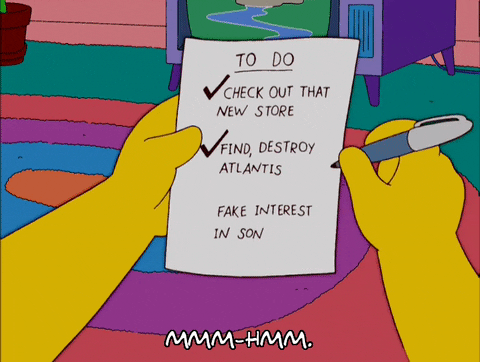Should I graduate early? That questions lingers on the mind of every college student at some point during their academic career. The thought of saving some extra money and getting out of school sooner entices many students. It even encouraged me to graduate early. Once you decide to, the options may seem overwhelming. I am here to tell you to take a deep breath and don’t get too stressed over it. These tips and tricks will help you navigate your new-found desire to graduate early.
Read on to see the best tips for graduating early from someone who did exactly that.
1. Time Management

When you start your college career, it may seem impossible to earn how to balance your schedule with your social life. If you plan to graduate early, the odds seem to stack against you. I can promise you that the feeling of being overwhelmed won’t last forever. I felt like I drowned in my work once I started pushing to graduate early. I learned an organizational structure that worked best for me and broke down everything that I needed to do. I created various lists with my assignments based on their due dates and the extent of work it would take me to finish them. I then started on those with the heaviest workload that were due the earliest. Once I settled into this structure, I found myself completing my assignments with ease. My stress immediately lightened.
2. Tracks Credits on Your Own

While your academic advisors track the credits required for you to graduate, you still need to stay on top of your own requirements. Academic advisors work with multiple students and you might get lost amongst your fellow classmates. You need to go onto your university’s website and then find your major. They often have the required courses listed for everyone to see as well as the amount of credits necessary to graduate. Keep a note of the classes you’ve already taken and the ones needed to graduate still. I did this in a folder specifically for my major requirements. I also made sure to write down which courses I hoped to take the next few semesters so signing up for my classes was a breeze. This goes hand-in-hand with creating an organizational structure. The more prepared you get yourself, the less stress you feel.
3. Start Early

If you can start taking college classes in high school, do it. Many schools offer opportunities to take Advanced Placement (AP) courses or Dual Enrollment (DE) courses. While AP courses require you to pass an exam, DE courses act as literal college courses. You can take most directly on a local college’s campus. The credits you earn from DE courses transfer to your university once you finish high school. If you push yourself hard enough, you can even graduate high school with your Associate’s degree, which includes all of the general education requirements you take the first two year of your degree.
I did exactly that and started courses related to my major once I transferred to Trinity Washington University after graduating high school. It saved my thousands of dollars and years of extra stress. Even if you can’t start taking credits in high school and you want to graduate early, start taking extra credits your very first year of college. This reduces the amount of credits you will need to take if you decide to crunch the last few semesters before graduation.
4. Take Summer Courses

Every college student looks forward to the freedom that summer brings. You finally get the chance to go on vacation and enjoy your time off. On the other hand, many still decide to take summer courses through their university to help push themselves closer to an early graduation. Luckily for you, summer courses often last half the time of a normal semester-long course. This means you get to still enjoy some of your summer while crossing a few required courses off of your list. The thought of taking courses during the summer may feel daunting, but they will finish in a breeze and you will feel much better once you realize you are one step closer to graduation.
5. Form a Good Relationship with Your Professors

Luckily for me, I attended a small, private university. This helped me form better relationships with my professors as my English program only had three full-time faculty. I took all of my credits with those three professors. Not only did this help me feel more confident when needing to ask for help in my classes, it also gave me the opportunity to ask for help with my major itself. The small size of the program meant that courses often got cancelled before the semester started. I panicked the first time this happened to me.
I reached out to one of my professors to ask what to do as it would set me back tremendously if I couldn’t take the course when planned. He helped me out by allowing me to take it as an independent study with his supervision. I took a total of five independent studies that counted towards my major requirements during my time at Trinity. I highly recommend forming that relationship with your professors. They might just save you when you need it.
6. Take as Many Credits as You Can a Semester Without Dying

If you decide to not take summer courses, you might want to load up your semesters with as many credits as you can. Many universities allow you to take 16 credits per semester without paying extra. You can push yourself even more to take extra credits, but you might have to pay extra tuition. I took 17 credits in one semester to help me graduate in the time frame that I did. It definitely raised my stress levels, but I don’t regret it when I look back on it now. If you think you can handle more classes without allowing your grades to drop, take as many as you can.
7. Communicate Constantly with Academic Advisor

Your academic advisor will turn into your new best friend if you hope to graduate early. While you need to keep track of your credits on your own, you also need to keep an open line of communication with the one person who tells you if you can graduate or not. Don’t worry about feeling as if you annoy them. If you have any questions about classes you need to take or just any advice, contact them. You need to stay persistent in your communications to ensure you don’t fall behind your college’s academic expectations.
I remember emailing my academic advisor with the smallest of questions to help reassure myself that I was staying on the path to early graduation. This happened even before I transferred to my second university. I ensured my credits would transfer properly and that I would start my program in the timeframe I figured out when I looked at my program’s credit outline. They may seem annoyed at first, but their job is to help you with things like this. Don’t be afraid to stand up for yourself if they tell you something other than what you know already about the program. Over time, you will create a great relationship with them and communication will be a breeze.
8. Stick to Your Plan

You most likely will know that you want to graduate early the moment you start college. Even if you don’t, you need to create a graduation plan. This encompasses everything that I mentioned, such as tracking your credits and discussing early graduation with your academic advisor. You need to inform your advisor of your plans as soon as you know them. They will help you formulate your plan as to what courses you need to take per semester and help you stick to it. Again, staying organized and sticking to a plan will make your life so much easier.
9. Double-Credit Courses

You might not know this, but some courses count for multiple requirements. For example, one of your general education courses can count towards your major requirements. I took multiple English courses throughout my time working on my general education requirements and they transferred to cover the elective requirements for my major. My jaw dropped when my advisor told me this because I never heard of such a thing. Your university won’t advertise the opportunity to take double-credit courses, but you can easily check on this while looking at requirements online. You can also bring it up with your advisor if you are curious about it. Work smarter, not harder.
10. Don’t Overdo It/Know When to Stop

While the idea of graduating early excites many, it might not be the best idea for everyone. The stress load that comes along with extra credits adds more pressure to an already difficult feat. Don’t worry about backing out if you find you can’t handle it. It doesn’t make you lesser of a student. You will still graduate and get your degree like your fellow students. Learn your own limits and don’t surpass them.



















